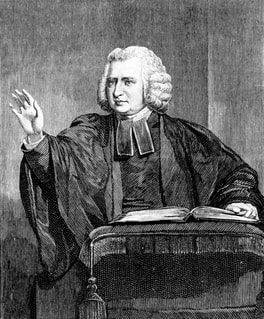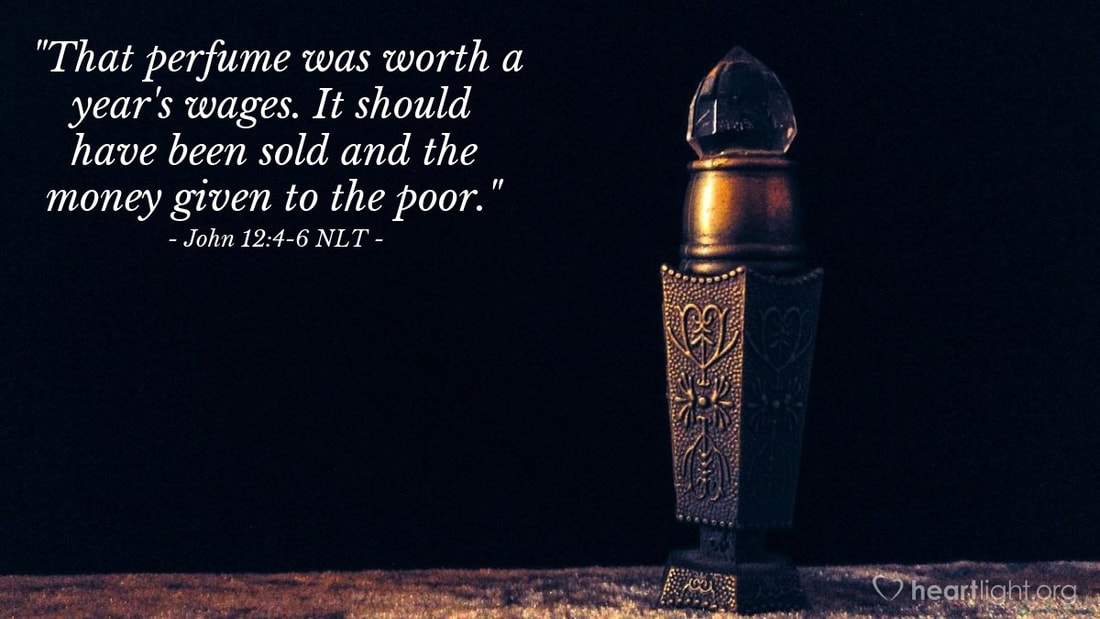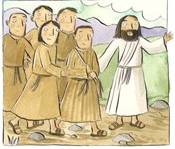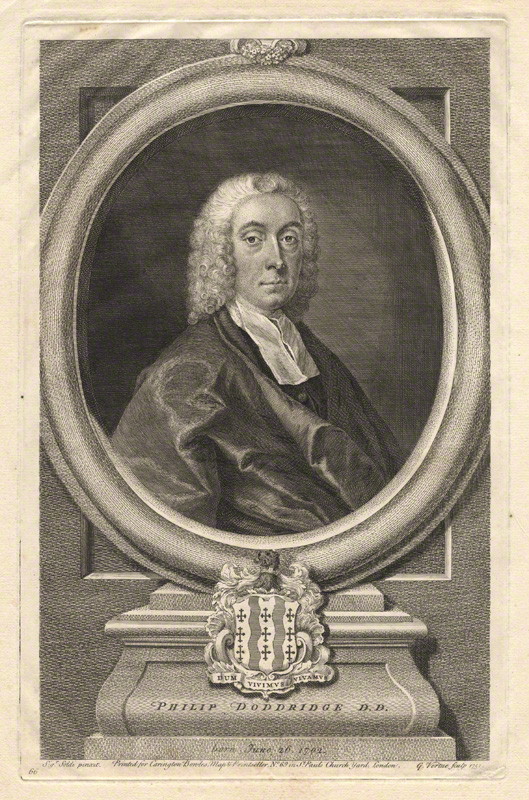|
This article was found in the February 1952 issue of Progress, the monthly magazine of the Romford Congregational Church Letters from an Uncle to his Niece and Nephew Dear Jack and Betty,
I was delighted to hear you are joining the Congregational Church at South St. It is, of course, only what I expected, as I know your family roots have been deep in that Church for at least three generations. Since hearing the news however, I have wondered whether you are joining your Church merely because mother and father (not to mention grandparents) are members. Please don't misunderstand me. I know you well enough to be sure you are not taking this step carelessly; that you do so only because you realise the Christian way of life is and always has been the only one worth living; that you both wish to love and serve our Lord and Saviour Jesus Christ and fully realise the best way to do this is to join in fellowship with others of similar views, and that you also realise this step is one of the most important of your young lives. No, my doubt is not there. It is I think best expressed by asking you both a few questions. Why are you joining a Congregational Church (and not an Anglican, Methodist, Baptist of Presbyterian)? Do you know where Congregationalism differs from these others? Do you know its history, its distinctive features, its glorious traditions? It is to give you a very brief knowledge of these things that I propose to write you this series of letters. I hope when you have read them all your interest will be aroused, and that you will wish to read more and in greater detail of this glorious story. But here again I must be careful. It is not my wish to give you the impression that the Church of Christ is confined to Congregationalism. We are but a branch of the one Church. Our own history, which does not go back earlier than the 16th century, must not blind you to the fact that when you join South St. Congregational Church you join the great Church of Christ - one great Holy Church - with a story going back nearly twenty centuries to the time of Christ Himself, now being preached the wide world over. The traditions and the story of these 20 centuries are yours to inherit; there is for you a great and glorious witness from the past whatever your denomination. Yet there is a romantic story to be told about Congregationalism. You probably know how the Reformation brought Protestantism to birth in the fifteenth century, but do you know of its earliest grim struggles against bitter persecution for well nigh a century, until finally it came to power for a brief space, under Oliver Cromwell - of further persecution following the Restoration, of the Act of Uniformity in 1662 when so many Congregational Churches were founded (including your own Church in Romford)? How, slowly but surely, your forefathers won complete freedom, and how this freedom was followed by decay and decay by revival? Then there is the story of the last 100 years or so when Independency cautiously - how very cautiously - groped its way towards Union and yet more union, always jealously guarding its independency and yet being forced more and more by the logic of events to closer and closer union. All this I will try and tell you very briefly. My aim will not be to give you a full and complete history of Congregationalism - that is beyond my powers - but to whet your appetite for more and to direct you to many excellent publications which will supply your need. If I can give you are little of the thrill and romance which I experience when I first read the story then my labours will not have been in vain. May God bless you, Yours affectionate, Uncle
0 Comments
The Gospel Reading I am looking at is taken from Mathew 10: 24-39, other lectionary readings that you may want to look at are: Jeremiah 20: 7-13, Psalm 69: 7-10, (11-15), 16-18. Romans 6: 1b-11
Gospel Matthew 10.24-39 “This reading continues Jesus’ teaching to the disciples about mission. The first section focuses on the identification of the disciples with their teacher – if he has been persecuted and maligned, then they must expect the same, especially to the degree that they emulate him. Beelzebul (Lord of the House) is derived from the Philistine Baal, and by Jesus’ time had come to be used to refer to a demonic force hostile to God. So the slander is effectively saying that Jesus was in league with God’s enemies. Jesus goes on to reassure and encourage them. The gospel of the kingdom is being revealed so they should not be afraid, even of physical death. (It is unclear whether the one who can destroy both body and soul (v.28) refers to God or to demonic powers.) Sparrows being one of the cheapest things to buy, Jesus’ followers are obviously of much more value than sparrows. And yet, God knows when a sparrow falls and how many hairs there are on the disciples’ heads. So, they can be sure that God will watch over their lives.” I will refer in part 3 of the Blog to a fantastic book called “Spitalfields by Dan Cruikshank, he looks into the history of Spitalfields through the eyes of the buildings, in some ways this is part of my own history, where my forbears toiled as weavers, the life of the Huguenot in the time after the Edict of Nantes was a harrowing one, this is not the time for a history lesson but I will in part 3 show some comparisons with the passage from Mathew. “In the culture of that time, one’s family was one’s primary unit of belonging – there was much less focus on individuals, and their wants and desires, and more on family honour and prestige. In light of that, Jesus’ acknowledgement of those who acknowledge him to the world can be seen as a statement of acceptance by Jesus’ Father into God’s family. Then we have further comments on the possibilities of the gospel bringing family strife (cf. Micah 7.6 and expectations that this would be a feature of the end of the age). Loyalty to Jesus is more important than the culturally important claims of blood relatives. Following Jesus is the primary call in life; whoever is not prepared to set aside anything else in life that interrupts the claim of Christ will not be worthy of the kingdom.” © ROOTS for Churches Ltd www.rootsontheweb.com Reproduced with permission This article was found in the December 1951 copy of Progress, the monthly magazine of the Romford Congregational Church. It was written by R. A. Newman The religious life of this country in the 18th century was at a very low ebb. The poor were illiterate and drunken. The rich were indifferent to their needs, and to religion. The clergy were lax, and many were not seen in their pulpits, or their parishes, for months at a time. It was in this period that there was born the great revival of religion, led by the Wesleys, who were responsible for the birth of Methodism. They were the children of Samuel Wesley, Rector of Epworth in Lincolnshire, a man of great piety, and of High Church principles. He married Susannah, one of the 25 children of Dr. Samuel Annesley, a famous Non-Conformist of that day. She was a woman of strong character, ruling the household, and caring for the instruction of their nineteen children. John was the 15th, born June 28th, 1703, and Charles four years later in 1707. The revenue of the rectory was approximately £200 p.a., subsidised by farming, in which the rector was somewhat unlucky. He found himself in Lincoln Castle jail for a debt of £30. The mob stormed the rectory, and set light to the thatched roof. John was the last to be rescued, and in after life referred to himself as "a brand plucked from the burning." Samuel and his wife Susannah were happily mated, but they had clashes of will. On one occasion he was praying for King William, and she, not favourable to the House of Orange, refused to say "Amen." "Very well, Sukey," said the rector, "if we are to have two kings, we must have two beds," and thereupon saddled his horse and rode to London on business. The boys had good schooling, reaching Oxford University, from which they graduated Masters of Art, and were ordained priests of the C. of E. Both went out to Georgia as missionaries, but failed to influence the lives of the settlers and Indians, and soon came home again, admitting their failure and troubled in mind. This resulted in spiritual conversion. Henceforth their preaching attracted the crowds by its evangelistic fervour and great enthusiasm for the salvation of souls. Eminent clergymen denounced them as false teachers, boasting of inspiration; encouraging abstinence, prayer, and other religious exercises, to neglect of the duties of their station; insolent pretenders, assuming language of the Holy Ghost, and much else. They were refused admission to the Church pulpits, and took to the fields, preaching to enormous crowds with such effect that men, women and children were calling for mercy, crying, screaming, falling in faints as if dead. Thus was born the great revival. John, stating the world was his parish, was excluded from a benefice. They were joined by George Whitefield, who, like the Wesleys, was descended from a line of Clergymen. He is said to have preached his first sermon at St. Botolph's Church, Bishopsgate, as an ordained priest, but had proved his ability by an earlier sermon at Gloucester, when it is said 15 persons were driven mad! The new birth, or conscious salvation, was his great theme. His evangel also upset the clergy, and no pulpit was open to him, so he took to the fields, preaching to colliers at Kingswood Common, near Bristol. Three weeks later he had a congregation of ten thousand, and it was recorded as having grown to twenty thousand. His voice was the finest in public oratory, with amazing compass and volume. C. E. Vulliamy, in his book on John Wesley, says Whitefield could make the people forgetful of place, and produce complete illusion. On one occasion he was using the metaphor of a blind man tottering towards the edge of a precipice. The emotion of his audience was raised in an incredible way. Lord Chesterfield was present, and at the critical point of the illustration, sprang from his chair shouting - "By God he's over!" On another occasion in his sermon he compared the stricken to a ship in distress, masts gone, ship on her beam ends. He shouted, "What is to be done?" Two or three sailors present jumped up, crying out, "The long boat, Sir - take to the long boat." Once, when walking in Boston, he met a certain D.D. "Ah," said the Dr., "I am sorry to see you here." "So is the devil," answered Whitefield. In August, 1769, he had nearly two thousand communicants one Sunday at Moorfields Tabernacle. He was Wesley's great help in the Revival, but worn out, troubled with asthma, he passed on to his rest at the age of 57 and was buried at Newburyport in Massachusetts. He called to John Wesley to take over his work at Bristol, and under his quiet methods, but logical preaching, conversions of a violent and sensational kind took place in large numbers, some falling to the ground as dead, others sobbing, some laughing and crying in the agony of the spirit, until peace came to them. Then John started preaching all over the country, everywhere forming small societies, appointing leaders, some laymen, others ministers. Thus was born Methodism. A Methodist John defined simply as "one who lives according to the method laid down in the Bible." Charles was in the battle with him, but in a quieter way. He was not a robust preacher, not of a robust constitution. He was the great Revival poet and singer. He had 6,500 hymns to his credit, 32 of which appear in our hymnary. He married a lady of means, and retired from the rough and tumble of the revival at the age of 49, but lived on to the age of 81, passing on in 1788. John carried on with the help of many assistants and leaders he had appointed. He travelled many thousands of miles, in England, Wales, Scotland, Ireland and in Holland, preaching the Gospel may times daily. In his latter days the tide turned in his favour. The Church dignitaries came to realise that he was a chosen instrument of God. He then had more invitations to preach in the Churches than he could accept, always regarding himself as belonging to the C. of E. On 2nd March, 1791, at the age of 88, John passed to his rest. That same morning, earlier, he sang with great vigour a verse of one of his favourite hymns by Dr. Watts: I'll praise my maker while I've breath, And when my voice is lost in death, Praise shall employ my nobler powers. My days of praise shall ne'er be past While life and thought and being last, Or immortality endures. The Wesleys often collaborated with both Watts and Dodderidge, as well as working with Whitefield, three great Congregational Divines. Whitefields Tabernacle at Tottenham Court Road is a permanent reminder to us of those stern days. Not only England, but the world, needs 20th century Revival in Religion.
O Lord, we enter into your steadfast love, asking that you will respond to our prayers; we trust in your abundant mercy and ask that you will come to us. O Lord, make your presence known to us; draw near to us; redeem us, set us free; for we seek to be your faithful disciples. Amen. I follow this with some words from: Tides & Seasons by David Adam The Weaver I weave into my life this day The presence of God upon my way, I weave into my life this hour The mighty God and all his power. I weave into my sore distress His peace and calm and no less. I weave into my step so lame Healing and helping of His name. I weave into the darkness of night Strands of God shining bright, I weave into each deed done Joy and hope of the Risen Son. I have started writing the blog for the 21st June on Monday 8th June, while going for my morning walk I listened to Father Brian D’Arcy on Radio 2 giving his pause for thought I won’t dwell on the actual pause for thought but was impressed with his description of what a pencil is, how it is made up and most importantly how that translated into his pause for thought, it was very clever. How do you think a pencil could relate to our own faith, the lead in the pencil could be our inner faith, when we use the pencil are we writing our faith in the way we live our lives, if we have to sharpen the pencil is that a way of reminding us to always look at ourselves and finally if we do make a mistake while writing we can use an eraser to remove the incorrect message, I think that’s what Jesus does for us, the preceding thoughts about the pencil are partly mine but are mostly Brian’s – how would you describe yourself if you were a pencil?
© ROOTS for Churches Ltd www.rootsontheweb.com Reproduced with permission This article was found in the November 1951 issue of Progress, the monthly magazine of the Romford Congregational Church I suppose that most church members keep either a dog or a cat, but I imagine that few Congregationalists have ever kept a fox in the kitchen. For the past two months Tod has lived an outdoor life, but when she was first adopted she spent most of her time in a box by the boiler in the kitchen.
She was dug out one Sunday morning in April, and brought in looking very rough and frightened. She was more like a rat than anything else, and with her greyish brown fur and a small tail certainly bore little resemblance to a fox. By Sunday afternoon she seemed to have settled down well and lay very quietly, wrapped in an old jacket on the couch in the sitting room. It was a relief to us when we found that she was able to lap milk because it would have been troublesome to feed her through a bottle. For the first two nights of her captivity she was restless, and although she had a hot water bottle to cuddle up to, she screamed, shrieked and barked nearly all night. The amount of noise which she could make was quite astonishing. The crying of a puppy is a mere bleat compared with the bark of a fox cub. However, when she had learnt to take enough milk, she slept very well, and apart from one occasion when she broke out of her box at 2 a.m. and whisked upstairs for a look round, consequently alarming the dog, she was quite well behaved. A soft leather collar was made for her and she looked just like an animated toy. We tried to take some snapshots of her at this stage, but had the greatest difficulty, as she never stood still. She took a mischievous pleasure in nipping the dogs' paws, and whenever she got near them her ears would go back as, hissing with excitement, she made a dash for their feet. In the evenings we used to have her in the sitting room where she ran about like a kitten, playing with balls of wool and paper, and stealing handkerchiefs from pockets. At teatime she liked to have pieces of cake, and was strongly attracted by the smell of honey. Macaroni cheese proved to be one of her favourite dishes, and she was very partial to chocolate iced cake, bread and jam, and raisins. It need hardly be said that she liked chicken bones, and at first would go into a wild frenzy of excitement at the sight of a chicken carcass. She would even shriek over a small bone, seize it, rush into a corner and chatter ferociously if anyone came near her. During the day she used to spend most of her time on a long rope in a corner of the garden where she had a rose bush and a lilac bush to hide under, and a low wall to sit on. She enjoyed this place and spent most of her day sleeping on the wall or lying out on the lawn watching us play tennis. Although she was so nervous, flying balls never seemed to worry her, and she used to lie as close to the tram-lines as she could, and if a ball rolled near her she picked it up and took it to her lair under the rose bush. However, by the end of July, her instinct for digging dens became highly developed, and her corner began to look very untidy. She threw up dozens of stones and strewed the grass with resurrected chickens' feet which she had chewed, buried and dug up till they were green, and old bones and dog biscuits. Now she has a night ark of her own but insists on living underneath it. At six month's old, she is a handsome and graceful creature. She has the red coat of a mature fox with grey and white underpants, and dark brown feet and ears. Her once miserable tail is a magnificent brush, very soft in quality. She grows very slowly, and I imagine she is not yet fully grown. Her large pointed ears and small sharp nose give her face an elegant shape, and she has excellent teeth. Tod looks far too amiable to slaughter anything until you give her a bone, when all her instincts are aroused. If she feels you are rather late with her breakfast she will take hold of your arm in her jaw and playfully pretend to shake it, and sometimes leaps out quickly and holds you by the ankle. However, it is all very good tempered. As a cub she never minded being handled, and never snapped if she was disturbed. She knows members of the family, and recognises them after weeks of absence, but is very sensitive to strangers and strange places. Like a dog or cat she likes being stroked or tickled, and will roll over on her back to be petted. She will also jump up like a dog and wag her brush. If it were possible to breed a race of domesticated foxes they would undoubtedly make charming pets, and, while giving and responding to affection like dogs, they would keep down mice with the efficiency of cats. The only difficulty would be that owing the extraordinary speed at which they move, we should find it as difficult to keep up with them as Alice found the Cheshire Cat. M.R.K.P. Notes from an address preached by the Rev. Ronald M. Ward, B.D. Originally published in the April 1951 issue of Progress, the monthly magazine for Romford Congregational Church. "Then saith one of his disciples, Judas Iscariot, Simon's son, which should betray Him, Why was not this ointment sold for three hundred pence, and given to the poor? This he said, not that he cared for the poor; but because he was a thief, and had the bag, and bare what was put therein." - John XII, 4-6
Judas protested at the lovely action of Mary, who anointed the feet of Jesus with costly ointment and wiped them with her hair. He protested in the name of charity, in the name of the needy, and the destitute and he protested in the presence of One who had said "Blessed are the poor," and, to the lawyer who heard the story of the Good Samaritan, "Go, and do thou likewise." Now generosity is a Christian virtue, but the generosity of Judas, so Christian in appearance, is nevertheless only a mask for his own greed. Perhaps he himself is not aware of this. Possibly his voice has a ring of sincere conviction in it when he condemns useless extravagance. But, nevertheless, the Evangelist is at pains to tell us, the sentiment does not move from a Christian centre. There are other stories in the New Testament which show how Christian virtue can be a mask, behind which Christ recognises an enemy. No doubt Peter felt within himself that he was moved by pure friendship when he rebuked Jesus for speaking of His approaching passion and death. "Be it far from Thee Lord; this shall not be unto Thee." Love, the supreme Christian value, seems to prompt him, and one can almost imagine the disciple slipping an affectionate hand through his Master's arm as he speaks. "But He turned and said unto Peter, Get thee behind me, Satan; thou art an offence unto Me." Evidently Peter's "love" was very painful to our Lord at this moment. Christian in appearance it concealed a refusal to accept the Cross. So it was a mask on the face of an enemy. On the night of Christ's betrayal and arrest, however, Peter finds the courage to draw a sword and wound a servant of the High Priest. Not always did he feel so brave. But with his Master by his side he does not fear to risk his life. Courage is a Christian quality. Most of us fail sadly for lack of it from time to time. Nevertheless our Lord again rebukes Peter. Perhaps He sees behind the mask of courage the face of hatred and fear. It is by love that Christ must conquer or not at all. You will remember the story of the Prodigal son, and how the elder brother complains that he has been unfairly treated. Is it just, he says, that one who has served faithfully for so long should be treated with less favour than a reckless, pleasure-loving lad, who has "wasted his living with harlots?" If this is a plea for justice and fair play, a protest against privilege and favouritism, it has a Christian ring about it. But the father in the story knows his son. He recognises, behind the mask of justice, the face of envy. He gently chides him: "It was meet that we should make merry and be glad; for this thy brother was dead and is alive again, and was lost and is found." Were the disciples pleased with themselves, I wonder, when John reported to the Master, "We saw one casting out devils in Thy name, and he followeth not with us: and we forbad him because he followeth not us." They were trying to express their loyalty to Christ by this action, and loyalty is a Christian virtue. But on this occasion our Lord does not accept it. "Forbid him not ... he that is not against us is on our part." May it be that behind the mask of loyalty is the face of jealousy? Did the disciples secretly resent the success of this unorthodox stranger who "followeth not with us"? Perhaps a measure of our denominational zeal hides the same sin. A good deal of apparently Christian behaviour fails to be Christian became it does not find its source in Christ. It was not devotion to Christ which moved Judas to advocate the Christian grace of charity; nor was it Christ who inspired Peter's courage in the garden of Agony. We must not identify Christianity too easily with an appearance of Christian virtue. Christianity points beyond virtue, beyond all morality even. The Gospel bids us look behind behaviour to the source of inspiration before we decide what belongs to Christ and what does not. Is Mary, wastefully anointing the feet of the Lord, a better symbol for Christianity than are the benefits of a Welfare State? Perhaps. Certainly the mask of Christian virtue may conceal hostility to the true purpose of Christ. One can be virtuous without being good. One can be religious without having faith. It may be that the best refuge from faith is a religion, and the best refuge from Christ a Christian ideal. Religion itself can conceal atheism, like a blind drawn in an empty house. What would you grab if your house was at risk from fire or flood – what is most important to you? That question works for possessions, physical items, but what else do we hold onto with determined loyalty whatever the cost? Our family and friends? What about our job? In times past a job was the stable basis of most people’s lives, something that identified who you were and seldom changed. John the postman. Gill the baker. We knew who and what people were. Has anyone of you ever been known in this way? What about Dave/Anne the Christian? Is our faith one of the ways that we are identified? I have been retired now for seven years, if I had been still working how stressful would it have been, Covid-19 the Pandemic has altered and changed so many lives, so many jobs lost, so much concern for peoples mental health, the massive increase in the use of Food Banks, the list of worries goes on and on. But amid all the mayhem there have been many stories of hope and kindness to others across all communities and faith groups, this has been uplifting to see. Society had moved on: making new life choices is now common even advisable (in the current climate some of those choices were not what those people wanted to make). Being in the same role for 20 years is a reason to change, not to stay.” I think I touched on this a few weeks ago, I was a production director for a garment manufacturer, when I became aware that I was very likely going to be made redundant, I spoke to the director of the employment agency I used when I needed new staff, he was good at his job, but advised me that I had spread myself too thinly and that only having had one job was in fact a disadvantage. I wonder what those early followers of Jesus felt when he called them from their jobs – fishing and tax collecting – to send them out with the good news of the kingdom. And to people who might reject and persecute them! It doesn’t seem like a good career move. I think I may have mentioned this in another Blog, I remember as if it were yesterday the first sermon I took back in 2009, I was so far outside my comfort zone, but I had leant one very big lesson, when I left the clothing trade for a new job as a compliance auditor I doubted myself, but my friend who asked me to work for him knew a few things, I was honest & hardworking & most importantly could transfer my skills into this new job, it was not easy . But the fisherman & all went anyway, they trusted Jesus, just as we must trust him. In our risk-averse age we like our comfort and security, and we are told not to do certain things (e.g. run in the corridors, participate in very dangerous pursuits – does anyone have other examples?). If faced with difficulties, are we more likely to give up than to deal with them? But the disciples went. Why do you think they were able to do that? How might that apply to and help us, today? I am very proud to be a volunteer at my local Library, and at Upminster Windmill, these have their rewards, meeting & interacting with different people, reminding myself of my duty as a Christian not to hide away, to take on the task however hard it may be.” You have received without paying, so give without being paid”. Look back at the picture at the beginning of the Blog: Part 1
Prayers in difficult times A prayer reflection It's difficult to live with uncertainty. However bad a situation, knowing what you have to face means that you can start coming to terms with it, facing your fears, planning your strategy. When the 'big picture' is too big or too blurred and indistinct, it's easier to focus on small details, to try to control what you can. The world has changed, how does that affect our living in the meantime? How do I need to change? How do I want to change? Is it possible to live each day as a new opportunity, while knowing that it feels the same as yesterday? I need your help, God, to listen for you in the clamour of voices calling for my attention, to focus on you in the midst of competing priorities, to trust you in this time of uncertainty. Amen Extracts taken from Roots with permission. All prayers are © ROOTS for Churches Ltd (www.rootsontheweb.com) 2002-2020. A talk by Mr. P. L. Brown given at the Romford Congregational Church Meeting on October 31st, 1951 In my report of the Annual Assembly meetings I gave details of a resolution passed at the Assembly on the subject of Gambling. I think to begin with I had better read that again. Here it is:-
"That this Assembly of the Congregational Union of England and Wales affirms its strong conviction that gambling from whatever motive or for whatever end is in irreconcilable opposition to Christian principles. "It notes in particular that gambling destroys the integrity of Christian personality, weakens the sense of personal responsibility, prostitutes the use of money by directing it to wrong ends, involves both economic and moral loss to the community and gravely impairs the happiness and well-being of homes. "It therefore calls in the strongest terms upon all Congregational Church members, and on all associated in the work of our Congregational Churches, not only to abstain from any such practices and to eliminate from all efforts to raise money for church purposes anything which might be understood as gambling, but also to ensure that the question of gambling is discussed in church meeting, and that young people receive adequate training in the Christian objections to the practice." About fifteen or so years ago, when I was Captain of the 1st Romford Boys' Brigade Company, I gave a talk to the boys on this subject. I remember I gave it the title of "Are you a sportsman or a mug?" and I commenced by asking the boys to give me a definition of that word "mug." We thrashed it out together, and this is what we arrived at: "A person who is easily taken in, one who is an easy prey for someone smarter; the kind of person who can be persuaded in Romford Market to pay 10s. for a 'real solid gold watch' which is not worth more than a few pence. The fellow bookmaker and his touts call 'a real good sport' to his face, and 'an easy mug' behind his back. The lad who thinks it manly to drink, swear and gamble." Not a bad definition - I hope you agree. Some years before the war a well-known bookmaker retired and wrote a book on his life. Here is an extract from that book: "In one single day I made as much as £5,000 - out of mugs - and I am writing to show the so-called sportsman that the odds against him are so tremendous that in the long run it is impossible for him to win. I hope that these words of mine will induce men to give the game up, as I am sure this would be a means of bringing happiness to thousands who now waste their money in a wilful way ... The odds against them are so fearful that success is next to impossible." That is a frank confession from one inside. Talking about odds, do you know what the real odds are against getting ten results correct in a football pool? Each match can end in one of three ways (a win for either side or a draw). The odds are therefore three to the power of ten, and if you are mathematically inclined you can work it out for yourself. The answer comes to 59,049, so the odds are 59,048 to one. Yet week after week hundreds of thousands are spending their money on equally fantastic odds. At this stage I must comment on the argument which I daresay all of you have heard. It runs something like this: Oh yes, I know all about the odds, but I cannot see that betting, in itself, is a sin. I cannot see anything wrong putting 2s. 6d. on a horse or a football pool. If I lose my half-crown I can afford it, and it's my own look-out." But surely the answer is this. No act of yours or mine can stand by itself. It must be considered as part of the world in which we live. You cannot shut yourself up and isolated yourself and your actions. You are part of Society, and we are all bound together in this bundle we call life. If, therefore, you know that gambling is getting a stranglehold on the nation, ruining homes, breaking the hearts of loved ones, sending more folk to gaol or remand homes than any other crime; then you as a good citizen, as a Christian man or woman, should do all in your power to discourage, by your example, this practice which is the curse of this country. I often think that part of the trouble is that we have our moral standards all wrong. Two of the greatest organs of publicity, the press and the cinema, specially the latter, constantly hold up before the world that wealth and luxury are desirable ends in themselves. And are not Christians compromising today on these issues? Compromising with the world and the world's moral standards; is not that why we are failing? The standards of Christ must be accepted or rejected. There is no half-way house. You are either for or against them. You cannot serve God and Mammon. Do you know that round about one thousand million pounds is spent on gambling every year in this country? Just think of what we, as a nation, could so with that money. And if that does not shake you, what about the utter waste (in these days of man-power shortage) of the thousands of men and women employed by the gambling firms for utterly unproductive work. And if you are not concerned with the waste of money or labour, think of the degradation of national and individual character and loss of efficiency. Some firms have estimated the loss on gambling due to bad work, spoilt material, friction in shop, factory or office, as equivalent to ten per cent of their capital! The Rt. Hon. Phillip Snowden (later Viscount Snowden) when Chancellor of the Exchequer, said "Gambling is the distinctive vice of our age. It is a national canker which must be stamped out else this country will ultimately sink to a very low level." Do you know that the Football Association is very concerned about the growth of football pools, and would give a lot to be able to stamp it out? Why? Well here is what one member of the F.A. said about gambling. "In the forty years in which I have been associated with sport I have seen gambling corrupt every sport it touches, and I prophecy it will corrupt and ruin football if it continues." The following is an extract from The Congregational Quarterly of a few months ago: "The Epworth Press have just published a book entitled Gambling in English Life (6s.). It is an exhaustive survey of the practical aspects of this problem and gives an account of the efforts of Parliament to discourage and limit practices so socially pernicious. For we Christians, Christ's teaching about the stewardship of wealth is a sufficient condemnation of gambling gains as well as losses. What further guidance we need is found in the simple fact that a tree is judged by its fruit. A tree that bears much evil fruit is something less that good. Few fathers would learn with equanimity that their sons had developed a habit of gambling; and a man in any position of trust who was known to be a habitual gambler would on that account be regarded with justifiable suspicion." And now let me say what we can do to stop it. First of all, legislation won't stop it; it will only drive it underground. You have probably heard people say that gambling is the natural impulse of the human heart and never will be eradicated. That is where they are wrong. One thing and one thing only will stop it, and when I tell you what it is you will probably laugh because it is so unexciting, so slow in operation. The "one thing" is an educated public opinion. And now I will try to prove it to you. One hundred or more years ago open and unabashed drunkenness was the rule in all walks of life. Young men were not considered to have grown up until they had managed to get dead drunk - it was the manly thing to do. Today you seldom if ever see a drunken man. What has made the change? An educated public opinion. What stopped the evils of Child Labour in factories and mines? What stopped duelling in this country and the continent? What stopped cock-fighting? An educated public opinion. What killed slavery? The force of public opinion created by Wilberforce. And gambling can go too, Public opinion can win that victory, and in that victory every man and woman here tonight can play a part. Please remember that whenever you show to others that you consider gambling is both a mug's game, a sin, and a source of crime, you are helping a little to create that public opinion. In his Presidential address to the Congregational Union of England and Wales last May, the Rev. Howard Stanley, M.A., had this to say about gambling, and with his worlds I should like to close - "Let the Assemblies of our people be the places where Christian comment and judgement are delivered on those social and moral issues about which the men and women of our day are making up their minds and so shaping the character of this nation. If, for example, we take a different view about gambling than do the majority of the Church Assembly, if by observation and experience we are sure that it is the greatest single social evil of our time, a cancer gnawing at the heart of the nation, an irrational and anti-social habit, a negation of the Christian principle of stewardship, let us say so, and be reported as saying so, not only in the pages of the Christian World, but in the provincial and local press, let us say so, not only in this Assembly, but nearer the homes of our people, nearer our lads' clubs and Boys' Brigades and Boy Scouts." Gospel Matthew 9.35–10.8, (9-23)
“Matthew has previously introduced a block of teaching with a summary of the mighty acts Jesus performed (4.23-25, which is followed by the Sermon on the Mount). Here (9.35-38), Matthew follows the same pattern but uses the focus on Jesus’ compassion as an explanation of his subsequent summons and instructions to the disciples. They are given Jesus’ authority to cast out unclean spirits and heal, and they are sent out. (10.2 is the only place where Matthew refers to any of the disciples as ‘apostles’, that is ‘sent-out ones’.)” Jesus regards the people of Israel as ‘sheep’ (9.36; 10.6). This is common biblical picture language for the people of God, along with the image of God as their shepherd (e.g. Psalm 23; Ezekiel 34; Psalm 100.3). Similarly, the idea of them needing, or being without, a shepherd to care for and guide them is found in various Old Testament texts (Numbers 27.17; 2 Chronicles 18.16; Ezekiel 34.6). Here and elsewhere, Matthew’s Gospel pictures Jesus as a shepherd (25.31. 26.31) who has compassion for his sheep. Similarly, ‘harvest’ (9.37) is being used as picture language to refer to God judging and dealing with the world’s sin (cf. Jeremiah 51.33; Hosea 6.11; Revelation 14.14-20; Matthew 13). Harvest is portrayed as a time when sin will be separated from what belongs in God’s kingdom (see 13.26-30, 36-43). Elsewhere, Matthew clearly anticipates the gospel being preached to non-Jews (28.19-20), but here Jesus sends the apostles only to the Israelites, to tell them that ‘the kingdom has come near’ (10.6-7). This claim will be supported by their doing the same wondrous deeds as Jesus. They are not to charge for their work but are to be as dependent as possible on the support of those to whom they go. Some of the instructions seem extreme – who would go on a journey without sandals or staff? Since the parallel account in Mark (6.8-9) allows both, it seems likely that the sense is for them not to take spares. In a culture where hospitality was hugely important, their situation of dependence would then provoke responses, good or bad, from those to whom they went. The extended reading (vv.9-23) indicates that some will respond negatively towards the disciples and will face consequences for this on the day of judgement (Sodom and Gomorrah were used as classic examples of generally sinful behaviour as outlined in Ezekiel 16.49-50). The teaching goes on to indicate that there will be persecution of those who spread the gospel, and family divisions will result; but the ‘sent ones’ are to know that the Spirit of their Father will speak through them. Extracts taken from Roots with permission. All prayers are © ROOTS for Churches Ltd (www.rootsontheweb.com) 2002-2020. This article was found in the September 1951 copy of Progress, the monthly magazine of the Romford Congregational Church. It was written by R. A. Newman Many Congregational Churches throughout the Country, will be celebrating, in some form or other, the two hundredth Anniversary of the death of the Rev. Dr. Phillip Doddridge, on or about October 26th [1951]. It may be by special sermons, lectures, or the singing of his hymns. He was not only a great and noted 18th century Congregational preacher, but a poet in the realm of Hymnody, of no mean order. He was the author of no less that 375 Hymns, but only eleven appear in our Hymnary to-day, although in previous editions (e.g. dated 1859) forty-six were included.
He ranked with Watts, the Wesleys, Montgomery, Cowper and Newton as an Hymnologist. His hymns that we are all familiar with are: -
Dr. Charles Stanford tells us that the Doddridges are supposed to be descendants of one named "Dodo", who lived in the time of King Edward the Confessor, and is recorded in "Domesday Book" as owning certain manors in Devonshire. In a land of dells and declivities it was natural that Dodo should build his house on a ridge and become known as "Dodoridge". By the time of Queen Elizabeth [the first] the family name seems to have become "Doddridge". Geoffrey Nuttall records Phillip as born in London on 26th June, 1702, three months after Queen Anne came to the throne, and was the twentieth child of his parents, only two of which survived childhood. His father was an oilman, but his two grandfathers were ministers, with the courage of their convictions, by throwing their lot with the Nonconformists as a result of the Act of Uniformity in 1662. Phillip was orphaned at the age of 13, and his guardian placed him in a school at St. Albans, the principal being a Nonconformist Minister. At 16 he became a Church member, and vert early definitely decided for the Ministry. His uncle was steward to the Bedford estates, and the Duchess became interested in the boy, offering him a university education, attaching the conditions that he conformed to the C. of E. It was a very tempting offer, especially as the Universities were not open to dissenters. It was not until 1871 that it was possible for Nonconformists to receive degrees at Oxford or Cambridge. If such were desired the pupil had to go to Scotland or Holland. Doddridge declined the offer, remaining true to his dissenting interests, which later he said "I take to be the interests of Jesus Christ". He was, however, helped in his training for the Ministry by friends, gaining him (1719) admittance to the Academy of the Rev. John Jennings at Kibworth, Leicestershire, who was the Independent Minister at Kibworth. At the decease of Jennings, Phillip was senior student, and was called to the pastorate at the age of 21, salary £35 per annum. He said provisions were cheap and that he might manage on £10. The morning congregation numbered 40 and the evening never exceeded 150, each one slowly stumbled in, sleeking down his hair, tempting the young minister to write: "My congregation is the most impolite I ever knew, consisting of shepherds, farmers, graziers, and their subalterns." He soon became in great demand as a preacher over a very wide area, and received calls from Coventry, Nottingham, Pershore, Bradfield, Brockfield and Lincoln's Inn Fields, all of which would have been at an enhanced income, but he widely spent his time consolidating his position by wide and critical reading, and as to marriage he was of opinion that it was not to be thought of in a hurry. In 1729 a call came from Castle Hill Church, Northampton, where he settled in December of that year, stating he never expected to be called to a ministry in a country so delicate and polite. The flourishing state of the Dissenting interest in the County was called: "The glory of our cause in England". Here he ministered for the rest of his life, i.e. 21 years, being barely 50 when he died. In addition to his Ministerial duties he started an Academy for students at Kibworth and continued at Northampton where his salary was but £70 per annum. Professor Victor Murray says his students varied in number, e.g. in 1730 they numbered 40, in 1743 the total was 63, but in 1747 only 29. On entrance the student paid a guinea for his room, a guinea for the library, a guinea for wear and tear of scientific apparatus. Tuition was £4 a year, and board £16. The course was 5 years for theological students, and 3 years for laymen. Doddridge was supposed to make a profile of £4 per annum on each student, but seldom realised for he kept a very liberal table. He married in 1730 and the housekeeping books of his first year of married life were preserved, which gives the following interesting reading: One quarter's rent, £2. 10s. 0d Two bedsteads 14/-, easy chair 6/- Servants' wages, £6. 10s. 6d. Mrs. Doddridge pin money for the year, 6s. 1d. Price of mutton, 2 1/2d. per ib. Later, 3 months' schooling for child, 3s. 6d. Of their 9 children, 5 died in infancy. His wife Mercy is referred to as "the dearest of all dears". Doddridge was the friend and disciple of Isaac Watts, also the friend and collaborator on religious matters of John and Charles Wesley, that great evangelist George Whitefield, the Countess of Huntingdon, and other religious leaders of his day, including the Archbishop of Canterbury, and several Bishops. In 1736 the Aberdeen University presented him with the diploma of D. D. in recognition of his great services as a teacher. Doddridge in addition to his work as pastor, principle of Academy, was the author, already stated of 375 published hymns, 53 books, and 37 pamphlets. His standard work referred to by many writers was the volume on the "Rise and Progress of Religion in the Soul" said to have been translated into many languages. At 49 years of age he was worn out, and with his wife took a sea trip to Lisbon for health, but soon after arrival he passed to his eternal rest, October 26th 1751, and was buried in the English Cemetery. George Whitefield on hearing of his decease, said: "Doddridge is gone, Lord Jesus prepare me to follow after". One of his own hymns I suggest sums up the life of a great, courageous, Soldier of the Cross My gracious Lord, I own Thy right To every service I can pay, And call it my supreme delight To hear Thy dictates and obey. His wife lived on to the age of 82, departing this life in 1790. |










 RSS Feed
RSS Feed